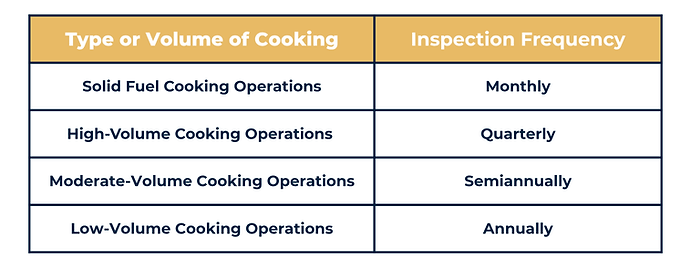

COMMERCIAL KITCHEN CLEANING EDUCATION - WHAT YOU NEED TO KNOW
Why Cleaning Matters In Commercial Kitchens
Maintaining a clean and safe commercial kitchen isn’t just good practice — it’s required by law. Proper cleaning of hood systems, exhaust ducts, and cooking equipment is essential for:
-
Preventing kitchen fires
-
Passing health inspections
-
Protecting staff and customers
-
Extending the life of your equipment
At Kitchen Kings, we help businesses across Georgia stay compliant with national and state regulations, including NFPA 96, Georgia Department of Public Health standards, and OSHA safety guidelines.
NFPA: National Fire Protection Association Standards
The NFPA 96 Standard for Ventilation Control and Fire Protection of Commercial Cooking Operations outlines how and when kitchen exhaust systems must be cleaned to reduce fire hazards. According to NFPA 96:
-
Cleaning must be performed by certified professionals
-
Grease-laden vapors must be removed before surfaces become heavily contaminated
-
Cleaning frequency depends on cooking volume & type:

Table 12.4 Schedule of Inspections For Grease Cleaning
Georgia Department of Public Health Regulations
In Georgia, commercial kitchens must comply with Food Service Rules and Regulations Chapter 511-6-1, which align with the FDA Food Code.
. These rules require:
-
Regular cleaning and sanitizing of food-contact surfaces
-
Proper maintenance of ventilation and exhaust systems
-
Safe handling and storage of cleaning chemicals
-
Documentation of cleaning schedules and inspections
Health inspectors from your County Environmental Health Office will assess compliance during routine inspections.
OSHA Guidelines For Kitchen Safety
The Occupational Safety and Health Administration (OSHA) enforces workplace safety standards that apply to restaurants and food service establishments
. OSHA requires:
-
Safe ventilation systems to reduce exposure to fumes and heat
-
Proper labeling and handling of hazardous cleaning chemicals
-
Slip-resistant flooring and PPE (gloves, aprons, etc.)
-
Fire safety protocols, including clear exits and extinguisher access
Non-compliance can result in citations, fines, and increased liability.
